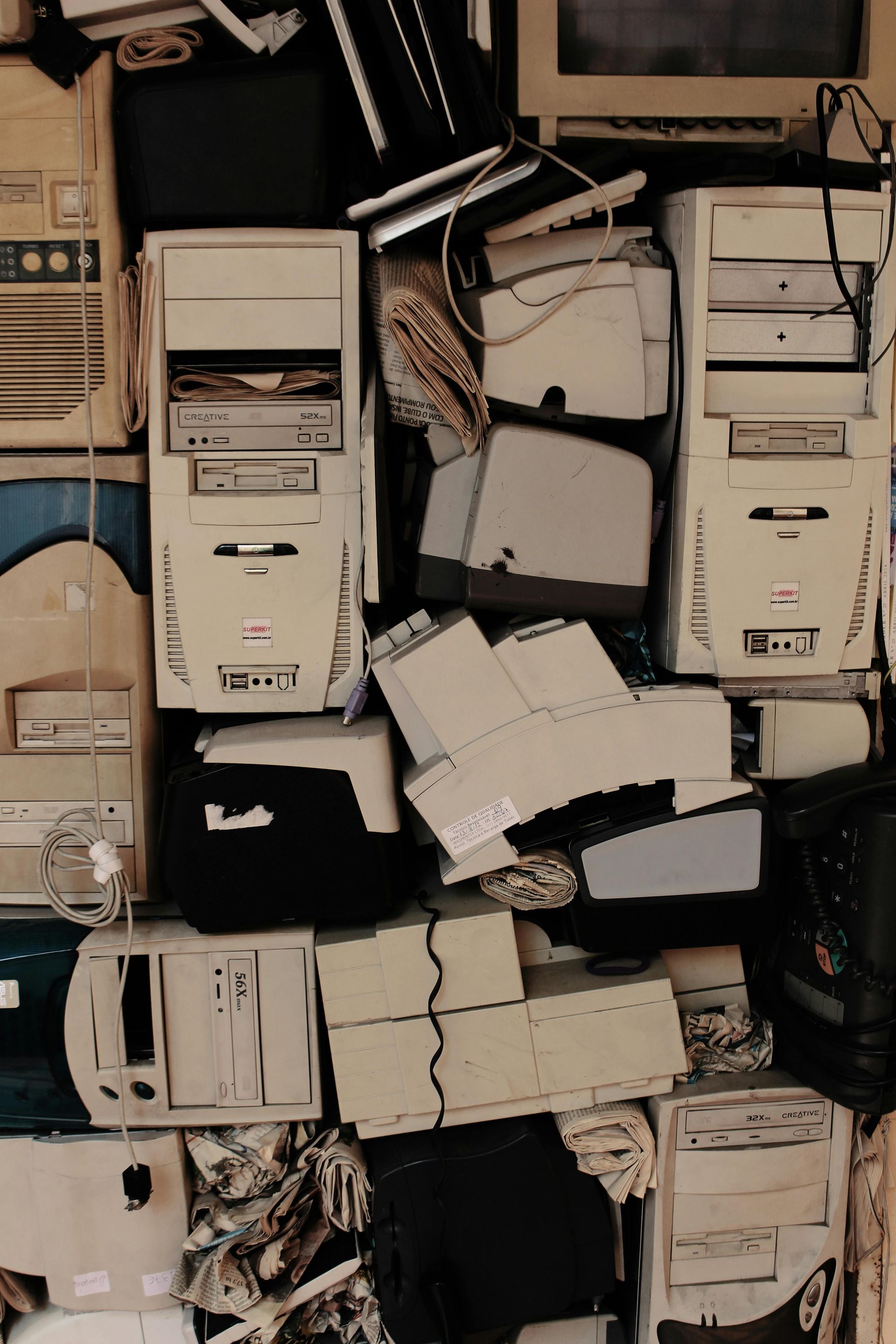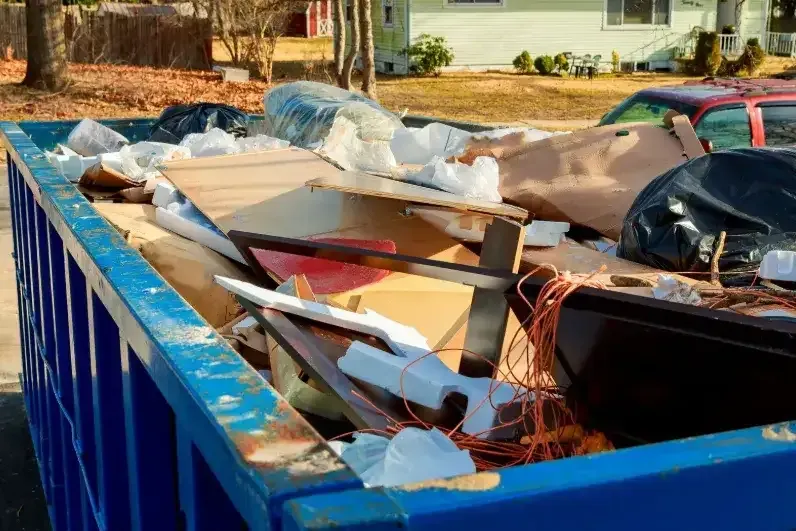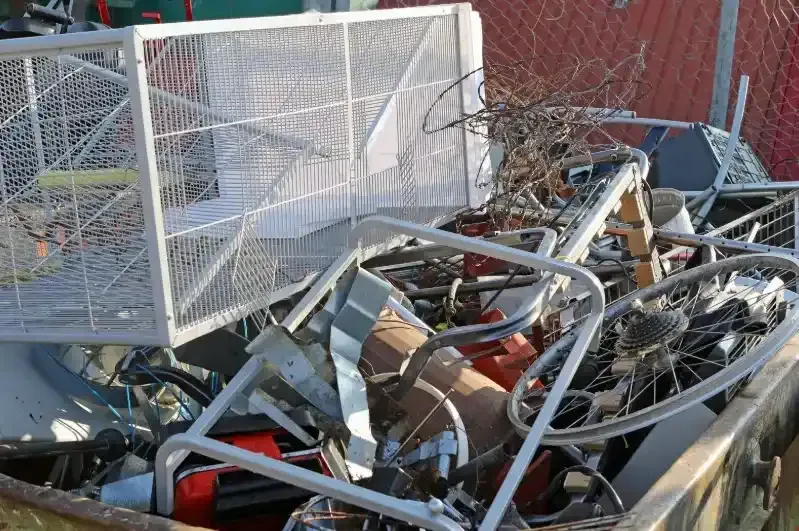E-Waste Disposal: Why It’s Critical to Recycle Electronics Properly
In today’s rapidly advancing technological world, electronics have become an essential part of our daily lives, revolutionizing how we communicate, work, and entertain ourselves. From the smartphones in our pockets to the computers that power our businesses, technology is constantly evolving to meet our ever-growing needs. However, with this progress comes a significant and often-overlooked challenge: the proper disposal of electronic waste, or e-waste.
As we upgrade our devices, countless old electronics are discarded, creating a vast and growing problem. If not managed properly, e-waste poses a serious threat to both our environment and human health. Harmful chemicals from outdated devices can leak into the soil and water, while valuable resources are lost to landfills.
Understanding E-Waste: What Is It?
E-waste refers to discarded electronic devices such as computers, televisions, cell phones, refrigerators, and various household gadgets that are no longer in use. These items are often thrown away due to malfunctions, upgrades, or because they have become obsolete. Electronics contain a variety of materials, some of which are valuable and others hazardous to the environment. For example, precious metals like gold, silver, and copper are found in many devices, while others contain toxic substances such as lead, mercury, and cadmium.
The disposal of these devices can lead to significant environmental harm if not handled properly. The global e-waste problem has been exacerbated by the rapid pace of technological innovation and the growing consumption of electronics worldwide. As people continue to upgrade their devices, a staggering number of electronics are discarded each year, contributing to the ever-expanding volume of e-waste. If not managed correctly, these discarded devices end up in landfills, contaminating the environment and posing serious health risks to both humans and wildlife.

The Dangers of Improper E-Waste Disposal
When electronics are improperly disposed of, they often end up in landfills, where they can wreak havoc on the environment. Some of the chemicals and materials in electronic devices, such as mercury, lead, and cadmium, can leach into the soil and groundwater, leading to contamination. This contamination can harm ecosystems, pollute water supplies, and ultimately affect wildlife and human health. One of the most alarming aspects of e-waste is the presence of toxic heavy metals, which can cause long-term damage to both the environment and our health.
For example, lead, which is commonly found in older televisions and computer monitors, is a potent neurotoxin that can lead to developmental issues in children and can even cause neurological damage in adults. In addition to the harmful chemicals in electronics, improperly discarded devices can also lead to air pollution when burned. The burning of e-waste releases harmful substances like dioxins, which are carcinogenic and can cause respiratory problems, among other health issues.
Why Recycling E-Waste Is Essential
Recycling e-waste is not just a matter of reducing environmental harm; it’s also an opportunity to reclaim valuable resources. Electronic devices contain a variety of materials—precious metals, plastics, glass, and more—that can be reused in the production of new devices. When e-waste is properly recycled, these materials can be extracted, purified, and reintroduced into the manufacturing cycle, reducing the need to mine raw materials from the earth. Precious metals like gold, silver, and palladium are often found in small quantities within electronic components. While the quantities may be small, they add up when you consider the billions of devices in circulation.
By recycling e-waste, we can recover these metals, minimizing the environmental impact of mining operations and reducing the demand for new resources. Recycling also allows for the proper disposal of harmful substances, which prevents them from entering landfills and polluting the environment. For instance, many modern recycling facilities are equipped to safely process harmful chemicals like mercury, cadmium, and lead, ensuring that these dangerous substances are dealt with in a safe and controlled manner.
The Economic Benefits of E-Waste Recycling
Recycling e-waste also has significant economic advantages. It provides an opportunity for job creation in the recycling industry, from the collection of old devices to the processing and extraction of valuable materials. As the demand for electronics continues to rise, so too does the need for effective recycling programs, which can lead to the creation of sustainable, green jobs.
Moreover, recycling e-waste helps drive the development of a circular economy. Rather than continuously extracting new resources, a circular economy promotes the reuse of existing materials, which reduces costs for manufacturers and ensures that valuable resources are not wasted. This is especially important for industries that rely on rare or expensive materials, as recycling can provide a more affordable and sustainable source of raw materials.
How to Properly Recycle Your E-Waste
While the need for e-waste recycling is clear, the next question is: how can we ensure our electronics are disposed of properly? The good news is that there are several ways to responsibly recycle your e-waste.
- Find Certified E-Waste Recycling Centers: The first step in proper disposal is finding a certified e-waste recycling facility. Not all recycling centers are equipped to handle electronics, so it’s crucial to ensure the facility is certified to process e-waste. Look for certifications like R2 (Responsible Recycling) or e-Stewards, which ensure the facility adheres to high standards for environmental and worker safety.
- Check for Local E-Waste Recycling Programs: Many cities and municipalities offer e-waste recycling programs, allowing residents to drop off their old electronics at designated locations. These programs may take place on a regular basis or as part of special recycling events. By taking advantage of these programs, you can ensure your devices are recycled properly.
- Donate Working Electronics: Before you throw away old electronics, consider donating them if they’re still in working condition. Many organizations accept used electronics, which they can either repurpose or distribute to those in need. By donating instead of disposing of, you extend the life of the device and help reduce waste.
- Retailer Recycling Programs: Some electronics retailers offer take-back programs, where you can return old electronics when you purchase new devices. These programs make it easier for consumers to recycle their electronics, and many retailers partner with certified recycling companies to ensure the proper handling of e-waste.
- Data Security: Before recycling any electronic device, it’s essential to ensure that all personal data is securely wiped from the device. This is especially important for computers, smartphones, and tablets. Failing to do so can leave your personal information vulnerable to theft. There are various tools available for wiping data, or you can seek professional services to ensure your data is completely erased.
The Role of Legislation in E-Waste Recycling
While individuals and businesses have a responsibility to recycle e-waste, legislation plays a crucial role in ensuring that e-waste is managed responsibly on a larger scale. Many countries have implemented laws and regulations aimed at improving e-waste recycling and reducing the environmental impact of electronic waste. For example, in the European Union, the Waste Electrical and Electronic Equipment (WEEE) Directive mandates that manufacturers are responsible for collecting and recycling their products once they reach the end of their life cycle. Similarly, the Restriction of Hazardous Substances (RoHS) Directive limits the use of certain hazardous materials in electronics, which helps reduce the toxicity of e-waste.
In the United States, several states have passed laws requiring electronics manufacturers to offer take-back programs, while others have created e-waste recycling programs for residents. Despite these advancements, however, the U.S. still lacks a federal law to regulate e-waste recycling comprehensively.
E-Waste Recycling and Sustainability
Proper e-waste recycling plays a key role in promoting sustainability and reducing the environmental footprint of our technological consumption. One of the primary benefits of recycling e-waste is the ability to reclaim valuable materials such as metals, plastics, and glass, which can be reused in the production of new devices. This reduces the need for raw material extraction, which can be resource-intensive and environmentally damaging. Moreover, recycling e-waste prevents these materials from ending up in landfills, where they can leach toxic chemicals into the soil and water, posing serious environmental and health risks.
By ensuring that electronics are disposed of responsibly, we can help reduce pollution, conserve resources, and minimize the strain on landfills. Recycling also contributes to the development of a circular economy, where materials and products are kept in use for as long as possible before being recycled or repurposed. This model helps lower the environmental impact of manufacturing and reduces the need for new resources, supporting a more sustainable and efficient use of the world’s natural assets.
Conclusion
The importance of recycling electronics properly cannot be emphasized enough, especially as technology evolves at such a rapid pace. Each new gadget and device we acquire often comes with the challenge of managing the waste it leaves behind. Improper disposal of e-waste can lead to severe environmental and health risks, from harmful chemicals leaching into the soil and water to the toxic emissions from incinerating old devices. By recycling electronics in a responsible and sustainable manner, we can prevent these dangers and contribute to a healthier, cleaner world for future generations.
Recycling also allows us to reclaim valuable resources like precious metals and reduce the environmental impact of mining. As we continue to embrace technological advancements, the need for proper e-waste disposal will only grow more pressing. Therefore, it is crucial that we all play our part in ensuring that electronic waste is disposed of correctly and ethically. If you are in need of reliable junk removal services in Gwinnett County, including the safe and responsible disposal of e-waste, Lasso & Load Junk Removal is here to assist. Feel free to contact us at 404-227-2017 or email Lauren.renwickk@gmail.com to schedule your junk removal service today. We’re committed to helping you declutter while protecting the environment.









